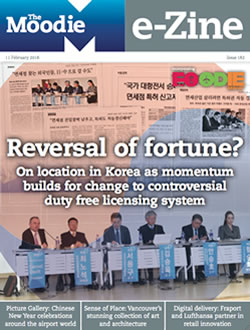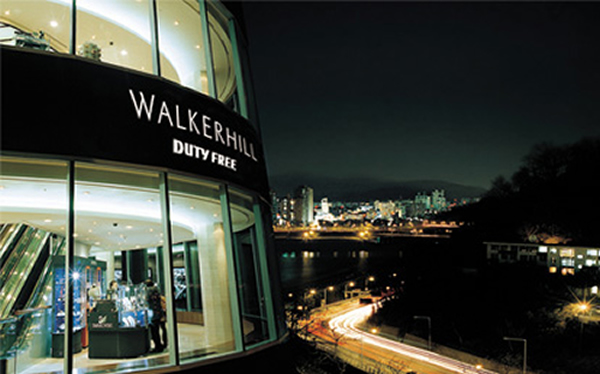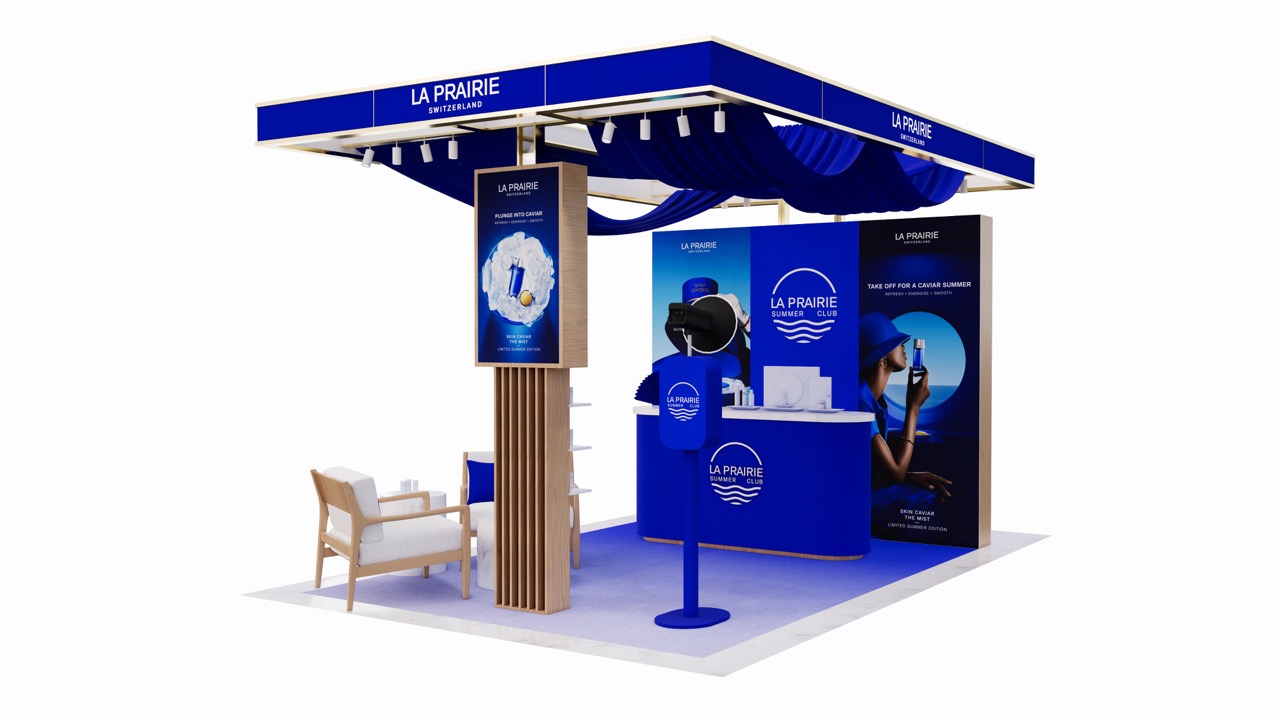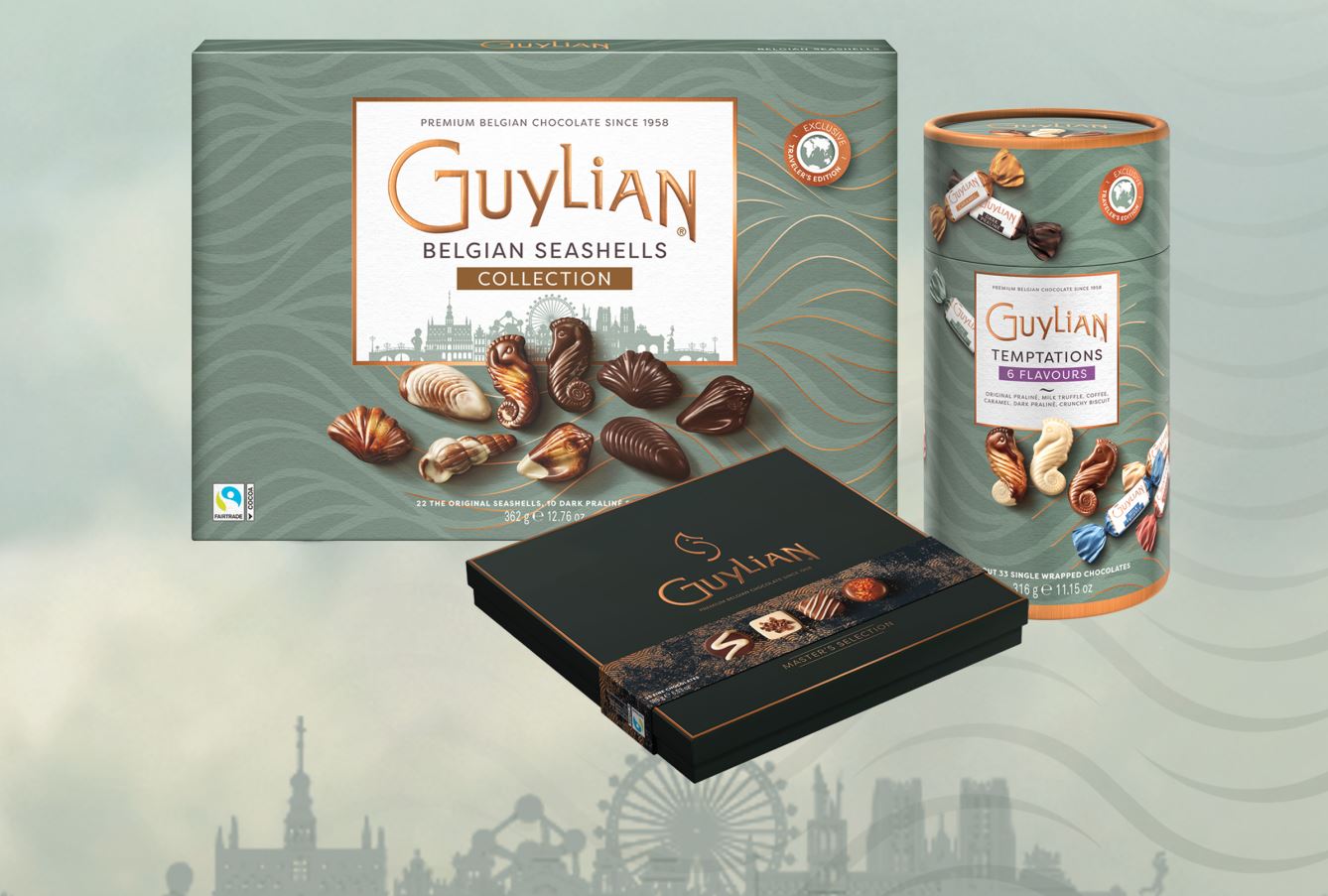SOUTH KOREA. The intense media interest in the licensing controversy over South Korea’s downtown duty free channel continues to build, with leading business titles devoting many pages to the evolving story, as a review of the system continues.
In recent months The Moodie Report’s views on the issue have been canvassed regularly by South Korean media. Chairman Martin Moodie has been extensively interviewed, while President Dermot Davitt spoke at a vital policy seminar at the National Assembly in early February.
In an interview published this week by Asia Economy, Martin Moodie put the Korean market into global perspective and said the recently introduced five-year licensing system needs urgent revisiting. “Korea is in a real fight to attract international tourists, particularly Chinese,” he said. “Keep the Korean duty free market number one in the world; add some more competition by all means but not by weakening the world-class retailers who have done such an outstanding job for the country.”
Asia Economy: What is the current global duty free shop trend like? Korea started the tax free system and neighbouring countries such as Japan and Singapore are strengthening the downtown duty free shop model. In the medium to long-term, what kind of duty free market will lead growth?
Martin Moodie: The global duty free market continues to grow across the world, despite challenges posed by currency fluctuations, terrorism, competition from e-commerce and other negative factors.
Globally the business is being driven by the Chinese travellers, who are the key target for duty free retailers across much of Asia and the Pacific as well as other regions. The recent liberalization of tax-free shopping in Japan typifies just how aggressively Korea’s rivals are chasing the Chinese traveler.
 |
Martin Moodie’s interview in Asia Economy; click on the above to view the enlarged image (then hover over graphs with your cursor and click for full detail) |
How do you evaluate the five-year licensing system for duty free in Korea?
Five years is simply not long enough by any standards. A minimum ten-year licence system should be in place though we recommend that this be subject to certain criteria being met during the licence term (for example, commitment to Korean products; giving back to society; high standards of tourism service; high-quality merchandising etc). Such a system would encourage retailers and international and Korean brands to invest in the market while giving the government and people of Korea reassurance that the duty free retailers were delivering on their obligations to society and to the tourism economy.
Some are concerned that duty free market in Korea is a monopoly and oligopoly now. Do you think that the concept of monopoly and oligopoly is meaningful in this special market?
In fact there is intense competition in the Korean duty free market – far more so than in many other countries such as China, Thailand and Singapore! The leading retailers, such as Lotte and Shilla, are ultra-competitive with one another and there are several other powerful players, such as Shinsegae, Dongwha and, now, Doosan and Hanwha Galleria, to ensure diversity and competition.
The duty free market is complex and requires strong companies to survive and provide the levels of service and brands that Chinese and other international shoppers demand. One should not confuse strength with monopolies. There is no monopoly in Korean duty free.
 |
What is the strength of Korean duty free shops?
Korean downtown duty free shops are among the world’s best. They offer an unusual combination of global and local brands that you simply don’t see in overseas duty free shops, which tend to be dominated by the same international labels. The Korean stores also tend to be extremely high-quality, enabling them to attract the really big international brands, including Louis Vuitton, which historically has not been present in many duty frees in the world.
Korean duty free retailers are certainly the world’s best in terms of social media, enabling them to enjoy a particularly close relationship with Chinese travellers. The way they have embraced Hallyu marketing, has no parallel anywhere in the world. That has made Korean duty free shops great shop windows for Korea, its culture and its products.
What do you think about the small and medium size duty free shops? Few SME duty free shops in Korea make a stable profit. What should be the aim ?
I think there is a place for SMEs to ensure diversity and competition in Korean duty free. But I believe such enterprises should be ADDITIONAL to the big, professional retailers, not replace them. Otherwise the Korean government is handing the advantage to big overseas duty free retailers who face no such competition in their countries.
Globally, Chinese tourists are leading the tourism and duty free industry. They are flowing into Korea as well. How long do you expect the trend to continue?
I think that Chinese tourism will continue to grow strongly long into the future. However competition from rival countries for those tourists (and from China itself via “˜domestic tourism’) will intensify continuously. Korea cannot take the Chinese tourism business for granted. It must double its efforts to offer the best services to Chinese tourists, particularly with shopping and promotion of its unique local culture.
Is duty free shopping a substantial business for the long-term?
Duty free will continue to be a substantial business in the future, despite huge competition from online shopping. But it must continue to evolve to the needs of international shoppers, Chinese, Koreans, Japanese and others. If you weaken and fragment the industry, you play into the hands of foreign rivals and the so-called “˜golden egg’ will crack.
You have talked a lot with people at the global luxury brands. What do they think about the customs law in Korea and the situation that the duty free shops are facing?
The major brands are consistently and strongly opposed to the new five-year duty free licence law in Korea. They want to work with stable, professional partners in the long-term not the short-term. Such brands guard their brand reputations jealously, and many will simply refuse to open new boutiques if more and more duty free retailers enter the market. They want quality not quantity.
Is there any advice you have for the Korean government?
My advice is to defend Korean interests, not to attack them. Korea is in a real fight to attract international tourists, particularly Chinese. Shopping is key to attracting those Chinese. Keep the Korean duty free market number one in the world; add some more competition by all means but not by weakening the world-class retailers you already have who have done such an outstanding job for the country.
Abandon the five-year licensing system and replace it immediately with a ten-year model, one in which “˜checks and measures’ are in place (perhaps via an independent regulator) to ensure a high-quality industry that contributes properly to Korean society.
I believe the licences granted in Seoul in late 2015 should be ADDITIONAL to those held by WalkerHill and Lotte, not replacements. I would grant five-year extensions to those two companies while the matter is under review. That will ensure additional competition without disincentivising investment and maximize employment.
 |
WalkerHill Duty Free (above) lost its licence through the new system, as did Lotte Duty Free World Tower (below) |
 |
 |




